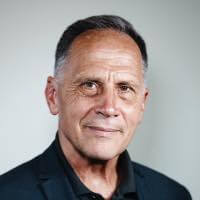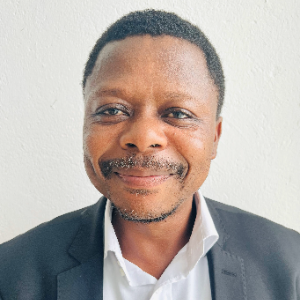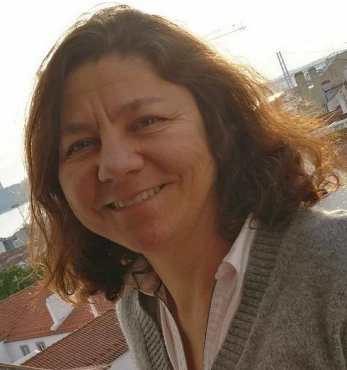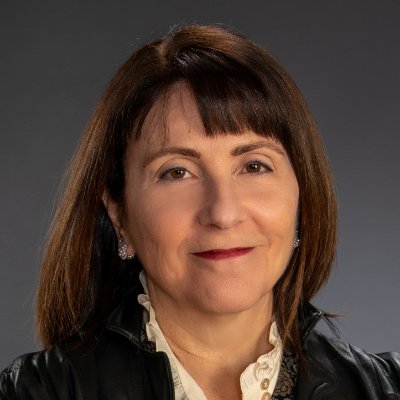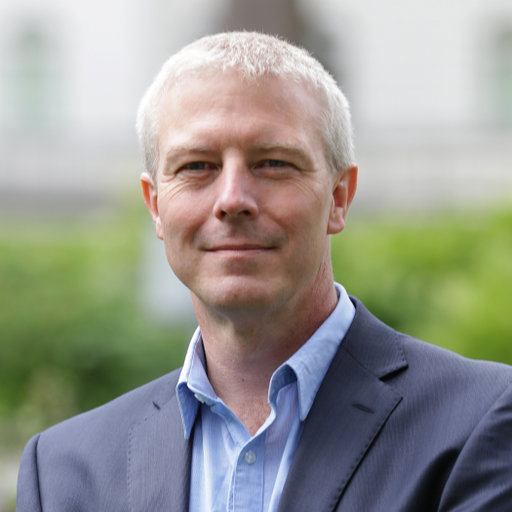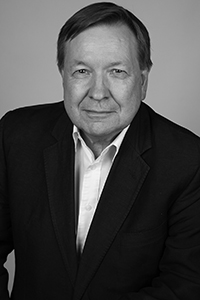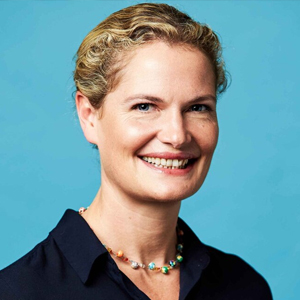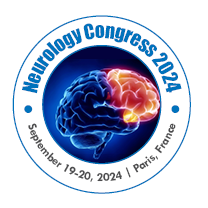About Conference
We welcome you and appreciate your participation at the 38th European Neurology Congress, which will be held during September 19-20, 2024, Paris, France and will be organized around the theme of “Neurology Horizons: Exploring Future Frontiers”.
Neurology Congress 2024 will be operated by world class experts in the field of Neurology and Neuroscience, International symposiums, B2B meetings, workshops will also be organised to discuss the specific topics in the field of Neurology like Clinical Neurophysiology, Neurosurgery, Neuro Muscular Disorders, Neuro Infectious Diseases, Pediatric Neurology, Neuropathology, Brain Tumor and Neuro-oncology and many more. The conference is aimed to identify the genetic determinants of common disorders to understand the mechanisms underlying human cognition. Neurogenetic Disorders are common among developed and developing countries. Genetic disorders and congenital abnormalities occur in around 2-5% of live births accounting for approximately 30% of pediatric hospital admissions in many places in the world. Neurogenetic conditions are generally chronic, long-term and incurable. In France approximately 10% of patients with neurological conditions have a single mutated gene as the basis for their disease. Furthermore, when polygenic inheritance is considered that is, the interplay between multiple genes and environment, a much larger proportion of neurological diseases are included. Dementia is strongly linked with age, and the France and other European countries have an increasingly ageing population. Currently 16% of the European population is over 65, with this figure expected to reach 25% by 2030. In the France it has been estimated that dementia alone costs the economy £17 billion a year.
Student Poster Competition is organized at Conference, to encourage students and recent graduates to present their original research which will be later published in the Conference Series LLC Journals. All accepted abstracts will be presented at the poster sessions during the conference. Conference Series LLC provides an opportunity to present E-Poster for all the students who cannot attend the conference with abstract published in the website with DOI number Live Streaming is a value added service offering to speaker at Conference Series LLC Conference.
Business networking is an avenue for vendors to have network and B2B meetings with “Top scientists and colleagues” and with an effective low cost marketing method for developing sales and opportunities and contacts, based on referrals and introductions either face-to-face at meetings and gatherings, or by other contact methods such as Telephone, E mail, Digital and Increasingly social and business networking websites.
Why to attend?
Neurology Congress 2024 will bring together experts like Neuroscientists, Clinicians, Neurogeneticst, Neurologists, Psychiatrists, Medical practitioners, Care specialists, academic professionals and students from all over the world to share an interest in the genetic pathways underlying neurological disorders, techniques to identify those genetic pathways, and the use of genetics and genomics as tools to develop therapeutics.
The aim of the conference is to provide a platform to academicians and practitioners from multiple disciplines to debate and deliberate on social change that is encompassed by innovation and technology.
Target Audience
· Neurologists and Directors
· Physicians
· Neuroscientists
· Specialists
· Researchers
· Health care professionals
· Professors
· Industrial Experts
· Neurosurgeons
· Psychiatrist
· Nutritional Scientists
· Lecturers and Students from Academia
· Students from Academia in the research of Neurology
Sessions/Tracks
Track 1 : Neurology
Neurology is the branch of medicine concerned with the examination and analysis of disorders of the nervous system. The nervous system is a complex; practical that regulates and coordinates body activities and it has two major divisions’ central nervous system and peripheral nervous system including their coverings, blood vessels, and all effector tissue, such as muscle. The doctor who specialized in neurology is known as neurologist. The neurologist trained to investigate, or diagnose and treat a neurological disorder that affects the brain, spinal cord, and nerves. Neurologists do not perform surgery if any patient requires surgery they refer to neurosurgeons.
-
Central nervous system
-
Peripheral nervous system
-
General neurology
-
Cerebrovascular disease
-
Behavioral neurology
Relevant Societies: American Neurological Association (ANA); World Federation of Neurology; California Neurology Society (CNS); European Paediatric Neurology Society (EPNS); Neurological Society of India; Society for Neuroscience; Child Neurology Society; Bulgarian Society of Neurology; The British Neuroscience Association; International Youth Neuroscience Association; Canadian Association for Neuroscience; British Association for Cognitive Neuroscience (BACN); ANA Austrian Neuroscience Association; Florida Society of Neurology; The Japanese Society of Psychiatry and Neurology
Track 2 : Clinical Neurophysiology
Clinical neurophysiology is a therapeutic specialty that studies the central and peripheral nervous systems through the documentation of bioelectrical activity, whether spontaneous or stimulated. It involves the study of both pathophysiology along with clinical methods used to diagnosis both in peripheral and central nervous system. Examinations in clinical neurophysiology field are not limited to tests conducted in a laboratory. Tests which are conducted are concerned with measuring the electrical functions of the brain, nerves in the limbs & muscles and spinal cord.
-
Electromyography
-
Electroencephalography
-
Evoked potentials
-
Polysomnography
-
Intraoperative monitoring
Relevant Societies: Canadian Association for Neuroscience; British Association for Cognitive Neuroscience (BACN); ANA Austrian Neuroscience Association; Florida Society of Neurology; The Japanese Society of Psychiatry and Neurology; Commonwealth Neurological Society; San Francisco Neurological Society; Colorado Society of Clinical Neurologists (CSCN); African Academy of Neurology; American Neurological Association (ANA); World Federation of Neurology; California Neurology Society (CNS); European Paediatric Neurology Society (EPNS); Neurological Society of India; Society for Neuroscience.
Track 3 : Neurosurgery
Neurosurgery is a medical specialty concerned with the prevention, diagnosis and treatment of patients with injury or diseases/disorders of the brain, spinal cord and peripheral nerves inner all parts of the body. A physician who specializes in neurosurgery is known as Neurosurgeon they are not only brain surgeons, but they can medically trained neurosurgical specialists who can also help patients suffering from back and neck pain as well as other illnesses ranging from trigeminal neuralgia to head injury and Parkinson's disease.
-
Vascular neurosurgery
-
Stereotactic neurosurgery/ functional neurosurgery
-
Oncological neurosurgery
-
Skull base surgery
-
Spinal neurosurgery
-
Pediatric neurosurgery
Relevant Societies: American Neurological Association (ANA); World Federation of Neurology; California Neurology Society (CNS); European Paediatric Neurology Society (EPNS); Neurological Society of India; Society for Neuroscience; Child Neurology Society; Bulgarian Society of Neurology; The British Neuroscience Association; International Youth Neuroscience Association; Canadian Association for Neuroscience; British Association for Cognitive Neuroscience (BACN); ANA Austrian Neuroscience Association; Florida Society of Neurology; The Japanese Society of Psychiatry and Neurology
Track 4 : Central Nervous System
The Central nervous system is the part of the nervous system consisting of the brain and spinal cord. It is referred as central because it combines information from the entire body and coordinated activity over the whole organism. CNS disorders can affect either the brain or the spinal cord which conclusion in psychiatric disorders or neurological disorders. The causes of CNS diseases are the neurology, trauma, autoimmune disorders, infections, structural defects, degeneration and tumours. So here we target on mood disorders, neurodegenerative diseases, schizophrenia and autism. Meningitis is an almost rare infection that affects the delicate membranes called meninges that cover the brain and spinal cord. By infection or allergic reactions, inflammation of brain occurs, it is known as Encephalitis.
-
Bipolar disorder
-
Neuropathic pain syndromes
-
Accessory nerve disorder
-
CNS disorder and structural defects
-
Facial nerve paralysis
-
Meningitis
-
Therapies for genetic disorders
Relevant Societies: Canadian Association for Neuroscience; British Association for Cognitive Neuroscience (BACN); ANA Austrian Neuroscience Association; Florida Society of Neurology; The Japanese Society of Psychiatry and Neurology; Commonwealth Neurological Society; San Francisco Neurological Society; Colorado Society of Clinical Neurologists (CSCN); African Academy of Neurology; American Neurological Association (ANA); World Federation of Neurology; California Neurology Society (CNS); European Paediatric Neurology Society (EPNS); Neurological Society of India; Society for Neuroscience.
Track 5 : Pediatric Neurology
Pediatric neurology happens mostly in youngsters or teenagers. Neurology influences around 6 in 100,000 youngsters. Neurology in kids is of three essential sorts in whom two are ischemic neurology in which blockage of veins outcome in absence of blood stream and harm. At the point when a corridor is blocked, the term blood vessel ischemic neurology (AIS) is utilized. At the point when a vein is block, the term utilized is cerebral Sino venous thrombosis (CSVT). In the third shape, haemorrhagic neurology (HS), the vein crack as opposed to being blocked. The most known signs and side effects of neurology incorporate the sudden appearance of failing or deadness of the face, arm or leg, more often than not on one side of the body.
-
Movement disorders (Cerebral paresis)
-
Muscle diseases
-
Lysosomal storage disease
-
Development disorders
-
Brain malformations
Relevant Societies: American Neurological Association (ANA); World Federation of Neurology; California Neurology Society (CNS); European Paediatric Neurology Society (EPNS); Neurological Society of India; Society for Neuroscience; Child Neurology Society; Bulgarian Society of Neurology; The British Neuroscience Association; International Youth Neuroscience Association; Canadian Association for Neuroscience; British Association for Cognitive Neuroscience (BACN); ANA Austrian Neuroscience Association; Florida Society of Neurology; The Japanese Society of Psychiatry and Neurology
Track 6 : Neuromuscular Disorders
Neuromuscular disorders affect the nerves that control your own voluntary muscles. Voluntary muscles are the ones which we can control by our self like in your arms and legs. Your nerve cells also called as neurons, send the messages that control these muscles. When the neurons become delicate or die, communication between your nervous system and muscles breaks down. As a result, your muscles weaken and waste away this weakness can lead to twitching, cramps, aches, pains, and joint and movement problems. Frequently it also affects heart function and your ability to breathe.
-
Amyotrophic lateral sclerosis
-
Multiple sclerosis
-
Myasthenia gravis
-
Spinal muscular atrophy
Relevant Societies: Canadian Association for Neuroscience; British Association for Cognitive Neuroscience (BACN); ANA Austrian Neuroscience Association; Florida Society of Neurology; The Japanese Society of Psychiatry and Neurology; Commonwealth Neurological Society; San Francisco Neurological Society; Colorado Society of Clinical Neurologists (CSCN); African Academy of Neurology; American Neurological Association (ANA); World Federation of Neurology; California Neurology Society (CNS); European Paediatric Neurology Society (EPNS); Neurological Society of India; Society for Neuroscience.
Track 7 : Psychiatry and Psychology
Psychiatry is the restorative forte committed to the determination, avoidance, and treatment of the mental issue. These incorporate different maladaptations identified with disposition, conduct, comprehension, and observations. Introductory mental appraisal of a man ordinarily starts with a case history and mental status examination. Psychology is the science of behavior and minds which including conscious and unconscious conditions as well as thought and feeling. Physical examinations and mental tests might be directed examples like neuroimaging or other neurophysiological procedures are utilized.
-
Psychology
-
Types of psycho therapy
-
Hypnotherapy
-
Counselling and psychotherapy
Relevant Societies: American Neurological Association (ANA); World Federation of Neurology; California Neurology Society (CNS); European Paediatric Neurology Society (EPNS); Neurological Society of India; Society for Neuroscience; Child Neurology Society; Bulgarian Society of Neurology; The British Neuroscience Association; International Youth Neuroscience Association; Canadian Association for Neuroscience; British Association for Cognitive Neuroscience (BACN); ANA Austrian Neuroscience Association; Florida Society of Neurology; The Japanese Society of Psychiatry and Neurology
Track 8 : Spine and Spinal Disorders
Spine disorders occur in individuals irrespective of their age -spina bifida in infants to spinal stenosis in the elderly. Causes of spinal cord disorders include mainly injuries, infections, blocked blood supply, and compression by a fractured bone or a tumor. The boost in spinal disorders has been met with a leap in advancements in the diagnostic techniques. Endoscopic spine, MRI, X- rays CT and DEA are some of the generally used tools in diagnosing spinal disorders.
-
Scoliosis
-
Lumbar spinal stenosis
-
Spina bifida
-
Cauda equina syndrome
-
Tumors
Relevant Societies: Canadian Association for Neuroscience; British Association for Cognitive Neuroscience (BACN); ANA Austrian Neuroscience Association; Florida Society of Neurology; The Japanese Society of Psychiatry and Neurology; Commonwealth Neurological Society; San Francisco Neurological Society; Colorado Society of Clinical Neurologists (CSCN); African Academy of Neurology; American Neurological Association (ANA); World Federation of Neurology; California Neurology Society (CNS); European Paediatric Neurology Society (EPNS); Neurological Society of India; Society for Neuroscience.
Track 9 : Neurogenetic and Neurometabolic Disorders
Neurogenetic and neurometabolic abnormalities are disorders that affect how the brain functions. They occur in young children of all ages, races and genders. Neurogenetic disease is the umbrella term of chronic diseases which describe the brain abnormalities that occur following changes in the genes of the child and these cause certain brain cells to develop and function abnormally. In the case of neurometabolic abnormalities; these disorders result from problems in the enzymes of the body’s cells which are either unable to either use foods to produce the energy the cell needs, or get rid of the breakdown products of the foods used.
-
Biochemical genetics
-
Gene mutation and disease
-
Neural engineering
-
Genetic engineering and gene sequencing
-
Cancer neurogenetics
-
Huntington disease
Relevant Societies: American Neurological Association (ANA); World Federation of Neurology; California Neurology Society (CNS); European Paediatric Neurology Society (EPNS); Neurological Society of India; Society for Neuroscience; Child Neurology Society; Bulgarian Society of Neurology; The British Neuroscience Association; International Youth Neuroscience Association; Canadian Association for Neuroscience; British Association for Cognitive Neuroscience (BACN); ANA Austrian Neuroscience Association; Florida Society of Neurology; The Japanese Society of Psychiatry and Neurology
Track 10 : Neuropharmacology
Neuropharmacology is the examination of how drugs influence cellular function in the nervous system and the neural system through which they influence behavior. There are two branches of neuropharmacology behavioral and molecular. Behavioral mainly focuses on the study of how drugs that affects human behavior (neuropsychopharmacology) including the study of how drug dependence and addiction affect the human brain. Molecular neuropharmacology involves the study of neurons and their neurochemical communication with the overall goal of developing drugs that have beneficial effects on neurological function.
-
Anti-anxiety drugs
-
Recent drug development
-
Neuroimmuno pharmacology
-
Neuro chemical interaction
-
Latest advancement in neuropharmacologcal therapy
-
Genome wide association studies
-
Biochemical genetics
Relevant Societies: Canadian Association for Neuroscience; British Association for Cognitive Neuroscience (BACN); ANA Austrian Neuroscience Association; Florida Society of Neurology; The Japanese Society of Psychiatry and Neurology; Commonwealth Neurological Society; San Francisco Neurological Society; Colorado Society of Clinical Neurologists (CSCN); African Academy of Neurology; American Neurological Association (ANA); World Federation of Neurology; California Neurology Society (CNS); European Paediatric Neurology Society (EPNS); Neurological Society of India; Society for Neuroscience.
Track 11 : Nursing and Neuroscience
Neuroscience sometimes called as neural science, and it is one of the most specialized fields of medicine in the world. This field of drug focuses on the health of the nervous system including the brain and spinal cord. Neuroscience nurse is a nursing professional that advice patients suffering from neurological problems like injuries such as head and spinal trauma from accidents or disorder such as Parkinson’s disease, meningitis, encephalitis, epilepsy, and multiple sclerosis. Neuroscience nurses also effort with patients suffering from strokes and birth defects that have affected the nervous system.
-
Neurosurgery
-
Neurotrauma (brain and spinal cord injury)
-
Neuroscience critical/intensive care
-
Long-term neurological conditions (stroke, multiple sclerosis, Parkinson’s Disease, epilepsy)
-
Life-limiting neurological conditions (motor neurone disease, Huntingdon’s disease)
Relevant Societies: American Neurological Association (ANA); World Federation of Neurology; California Neurology Society (CNS); European Paediatric Neurology Society (EPNS); Neurological Society of India; Society for Neuroscience; Child Neurology Society; Bulgarian Society of Neurology; The British Neuroscience Association; International Youth Neuroscience Association; Canadian Association for Neuroscience; British Association for Cognitive Neuroscience (BACN); ANA Austrian Neuroscience Association; Florida Society of Neurology; The Japanese Society of Psychiatry and Neurology
Track 12 : Neuroimmunology and Neuroinfections
Neuroimmunology a branch of immunology that deals especially with the interrelationships of the nervous system and immune responses and autoimmune disorders. Its deals with particularly fundamental and applied neurobiology, neurology, neuropathology, neurochemistry, neurovirology, neuroendocrinology, neuromuscular research, neuropharmacology and psychology, which involve either immunologic methodology (e.g. immunocytochemistry) or fundamental immunology (e.g. antibody and lymphocyte assays).
-
Multiple sclerosis
-
Auto immune neuropathies
-
Neuroimmuno genetics
-
Neurovirology
-
Neuroinflamation
-
Neuroinfectious disease
-
Neuromodulation Alteration
-
Novel drug development
Relevant Societies: Canadian Association for Neuroscience; British Association for Cognitive Neuroscience (BACN); ANA Austrian Neuroscience Association; Florida Society of Neurology; The Japanese Society of Psychiatry and Neurology; Commonwealth Neurological Society; San Francisco Neurological Society; Colorado Society of Clinical Neurologists (CSCN); African Academy of Neurology; American Neurological Association (ANA); World Federation of Neurology; California Neurology Society (CNS); European Paediatric Neurology Society (EPNS); Neurological Society of India; Society for Neuroscience.
Track 13 : Brain Tumor and Neuro-oncology
The abnormal cell growth and sudden reactions taking place from central nervous system results in brain tumour. Neuro-oncology is the study of brain and spinal cord neoplasms, which are very dangerous and life-threatening. Astrocytoma, glioblastoma, glioma, multiforme, ependymoma, pontine glioma, and brain stem tumours are some of the examples. Surgery may in some cases be the medicinal but malignant brain cancers turn to regenerate and emerge from absolution easily, especially highly malignant cases.
-
Metastatic tumours
-
Skull metastasis
-
Spinal metastasis
-
Peri-tumoral factors
-
Morphological changes
-
Blood-Brain barrier disruption (BBB)
Relevant Societies: American Neurological Association (ANA); World Federation of Neurology; California Neurology Society (CNS); European Paediatric Neurology Society (EPNS); Neurological Society of India; Society for Neuroscience; Child Neurology Society; Bulgarian Society of Neurology; The British Neuroscience Association; International Youth Neuroscience Association; Canadian Association for Neuroscience; British Association for Cognitive Neuroscience (BACN); ANA Austrian Neuroscience Association; Florida Society of Neurology; The Japanese Society of Psychiatry and Neurology
Track 14 : Neuroplasticity & Neurorehabilitation
Neuroplasticity is also known as brain plasticity and neural plasticity that encompasses the two synaptic and non-synaptic plasticity and it refers to advance in neural pathways and synapses due to difference in behavior, environment, neural processes, thinking, and emotions as well as to changes resulting from bodily. The goal of this session is to understand the brain plasticity advances in neurite remodeling and how to increase neural connections. Neurorehabilitation is a medical process which aims to aid recovery from nervous system damage and to minimize or compensate for any functional alterations resulting from it.
-
Cortical remapping
-
Clearly requiring controlled
-
Intensive stimulation of impaired brain networks
-
Cerebral palsy
-
Brain injury
-
Post-polio syndrome
Relevant Societies: Canadian Association for Neuroscience; British Association for Cognitive Neuroscience (BACN); ANA Austrian Neuroscience Association; Florida Society of Neurology; The Japanese Society of Psychiatry and Neurology; Commonwealth Neurological Society; San Francisco Neurological Society; Colorado Society of Clinical Neurologists (CSCN); African Academy of Neurology; American Neurological Association (ANA); World Federation of Neurology; California Neurology Society (CNS); European Paediatric Neurology Society (EPNS); Neurological Society of India; Society for Neuroscience.
Track 15 : Neuropathology
Neuropathology is the study of pathology focused on the disease of the brain, spinal cord, and neural tissue. This consists of both central nervous system and the peripheral nervous system. Neuropathologists usually work in a department of anatomic pathology for a diagnosis. Tissue analysis appears from either surgical biopsies or post mortem autopsies and this tissue samples include muscle fibbers and nervous tissue. It’s also related to forensic pathology because brain disease or brain injury can be related to brain death.
-
Parkinson's disease
-
Alzheimer's disease
-
Dementia
-
Huntington's disease
-
Amyotrophic lateral sclerosis
-
Mitochondria disease
-
Neural deterioration in the brain or spinal cord
Relevant Societies: American Neurological Association (ANA); World Federation of Neurology; California Neurology Society (CNS); European Paediatric Neurology Society (EPNS); Neurological Society of India; Society for Neuroscience; Child Neurology Society; Bulgarian Society of Neurology; The British Neuroscience Association; International Youth Neuroscience Association; Canadian Association for Neuroscience; British Association for Cognitive Neuroscience (BACN); ANA Austrian Neuroscience Association; Florida Society of Neurology; The Japanese Society of Psychiatry and Neurology
Track 16 : Neuro Cardiology & Strokes
Neurocardiology is the study of neurophysiological, neurological and neuroanatomical aspects of cardiology especially including the neurological origins of cardiac disorders. It also refers to the pathophysiological interplays of the nervous and cardiovascular systems. The effects of stress on the heart are studied in terms of the heart's interactions with the two peripheral nervous system and central nervous system. Scientific issues in neurocardiology include hypoxic-ischemic brain injury, neurogenic stress cardiomyopathy, cerebral embolism and encephalopathy, neurologic sequelae of cardiac and thoracic surgery, cardiac interventions, and cardiovascular findings in patients with primary neurological disease.
A stroke is a "brain attack". It can appear to anyone at any time when poor blood flow to an area of brain and results in cell death. When this happens brain cells are dispossessed of oxygen and begin to die. When brain cells die during a stroke it controls ability by that area of the brain such as memory and muscle control is lost.
-
Neurocardiac axis
-
Arrhythmias
-
Imbalance of autonomic neural inputs
-
Changes in neural oscillations
-
Neurogenic stress cardiomyopathy
-
Cerebral embolism
Relevant Societies: Canadian Association for Neuroscience; British Association for Cognitive Neuroscience (BACN); ANA Austrian Neuroscience Association; Florida Society of Neurology; The Japanese Society of Psychiatry and Neurology; Commonwealth Neurological Society; San Francisco Neurological Society; Colorado Society of Clinical Neurologists (CSCN); African Academy of Neurology; American Neurological Association (ANA); World Federation of Neurology; California Neurology Society (CNS); European Paediatric Neurology Society (EPNS); Neurological Society of India; Society for Neuroscience.
Track 17 : Critical Care Neurology
Neurology critical care/Intensive care is one of the newest and fastest–growing specialties in medicine today. It is a medical field that treats life-threatening diseases of the nervous system determine, prevents secondary brain injury. The doctors who process this type of medicine are called neurointensivists and can have medical education in many fields including neurology, emergency, anesthesiology medicine, internal medicine, or neurosurgery. Common diseases treated in neurointensive care units include strokes, brain and spinal cord injury from trauma, ruptured aneurysms, seizures, swelling of the brain, infections of the brain and the brains or spine's meninges, brain tumours and deficiency of the muscles required to breathe.
Relevant Societies: American Neurological Association (ANA); World Federation of Neurology; California Neurology Society (CNS); European Paediatric Neurology Society (EPNS); Neurological Society of India; Society for Neuroscience; Child Neurology Society; Bulgarian Society of Neurology; The British Neuroscience Association; International Youth Neuroscience Association; Canadian Association for Neuroscience; British Association for Cognitive Neuroscience (BACN); ANA Austrian Neuroscience Association; Florida Society of Neurology; The Japanese Society of Psychiatry and Neurology
Track 18 : Neurology Education
The purpose of this sector is to foster the development of a community interested in the practical and academic aspects of neurology education and with the ultimate goal to ensure its practitioners can provide care for those with a neurological disease. Through scholarly publications and analysis we will define clear educational outcomes and expand educational models to insure that our graduates remain reflective life-long learners who maintain and demonstrate their continued competence.
Relevant Societies: Canadian Association for Neuroscience; British Association for Cognitive Neuroscience (BACN); ANA Austrian Neuroscience Association; Florida Society of Neurology; The Japanese Society of Psychiatry and Neurology; Commonwealth Neurological Society; San Francisco Neurological Society; Colorado Society of Clinical Neurologists (CSCN); African Academy of Neurology; American Neurological Association (ANA); World Federation of Neurology; California Neurology Society (CNS); European Paediatric Neurology Society (EPNS); Neurological Society of India; Society for Neuroscience.
Track 19 : Clinical Trails & Case Reports
With a frequently expanding normal future neurological disorders are turning out to be more common in the public area. The financial and social expenses of neurological disorders to society are immense. Numerous excessive pharmaceutical organizations have moved far from CNS and neurology look into. This meeting will give designates a chance to increase extra profound experiences into the approved procedures in clinical trials and also tending to the difficulties in neurology examine about and by taking a gander at the most recent preclinical and clinical studies.
Relevant Societies: American Neurological Association (ANA); World Federation of Neurology; California Neurology Society (CNS); European Paediatric Neurology Society (EPNS); Neurological Society of India; Society for Neuroscience; Child Neurology Society; Bulgarian Society of Neurology; The British Neuroscience Association; International Youth Neuroscience Association; Canadian Association for Neuroscience; British Association for Cognitive Neuroscience (BACN); ANA Austrian Neuroscience Association; Florida Society of Neurology; The Japanese Society of Psychiatry and Neurology
Market Analysis
Neurology is the branch of medicine concerned with the examination and analysis of disorders of the nervous system. The nervous system is a complex; practical that regulates and coordinates body activities and it has two major divisions’ central nervous system and peripheral nervous system including their coverings, blood vessels, and all effector tissue, such as muscle. The doctor who specialized in neurology is known as neurologist. The neurologist trained to investigate, or diagnose and treat a neurological disorder that affects the brain, spinal cord, and nerves. Neurologists do not perform surgery if any patient requires surgery they refer to neurosurgeons. Many neurologists also have other training or interest in areas of neurology, such as stroke, epilepsy, neuromuscular, sleep medicine, pain management, or movement disorders. In some times neurologists may order some additional diagnostic test like imaging studies such as computed axial tomography (CAT) scans, magnetic resonance imaging (MRI), and ultrasound of major blood vessels of the head and neck.
Importance & Scope:
Neurology today holds a position in the various medical centres of the world which varies from complete nonexistence to high and complex development. Invasion of the field of neurology by different types of clinicians, the rapid development of psychiatry, the late appearance of neurosurgery and the important recent advances in neurophysiology and neuro-anatomy, all help to account for this variability and demand a reconsideration of the scope of neurology. A survey of neurology, neurosurgery and neuropathology as they are to be found in various centres of learning today supports this view. From the time that neurology first emerged as a specialty, it has suffered a progressive reduction in scope.
Market Analysis:
Neurology Congress 2024 focuses on broad array of disorders and cure of brain and connecting neurons. According to the latest survey conducted by WHO, it is revealed that Neurological Disorders encompassing Stroke, Alzheimer & Dementia, Epilepsy and many more accounts for more than 12% of deaths worldwide on an average and it is also predicted that the number of disability –adjusted life years vanished due to Neurological disorders are expected to accelerate from 95 million globally in 2015 to 103 million by 2030.Moreover, the worldwide cost of neurological squeal solitary estimated in 2010 was US$ 2.5 trillion and it is assumed that the value will spike to over US$ 6 trillion by 2030.
Alzheimer's Research France currently funds 150 research projects across the France and has committed nearly £40million to dementia research. Their research will focus on improving the quality of life of those already living with Alzheimer’s disease and other forms of dementia.
The Alzheimer's Association funds independent investigators worldwide, they have awarded over $335 million to more than 2,250 projects. Research conducted by the Alzheimer's Society, shows that there will be 850,000 people living with dementia in the France by 2015. This will cost the France £26 billion a year. The number of people with dementia in the France is forecast to increase to over 1 million by 2021 and over 2 million by 2051. This is a worst case scenario, under an assumption that there are no public health interventions and changes are driven by an ageing population alone. There are over 40,000 people with early-onset dementia (onset before the age of 65 years) in the France.
National Alliance provided fund of $650 million to fuel the research on mental illness. NARSAD Young Investigator Grant provides $30,000 per year on research in Neural and behavior disorders such as schizophrenia, mood disorders, anxiety disorders, or child and adolescent mental illnesses. Brain tumour research receives less than 1% (0.7%) of national cancer research spending in the France.
The number of people living in the France with neurological conditions is reported by the specialist organisations as follows:
Parkinson’s disease - 120,000
Multiple sclerosis - 100,000
Huntington’s disease - 6,500-8,000
Motor neurone disease - 5,000
Progressive supranuclear palsy - 4,000-10,000
Multiple system atrophy - 3,000
Why Paris, France?
Paris is the most populous city in the France. There are about 18 Universities in and around Paris which are working in the field of Neurological disorder. Around 1000 neurologist, psychiatrist and neurosurgeons are working exclusively on Neurological disorder in Paris. Along with professional services, media companies are concentrated in Paris.
Major Associations around the Globe
Neuropathy Association
The brain & behavior research foundation
Alzheimer's Association
American Academy of Neurology
European Neurological Societies
World Federation of Neurology
Spanish Society of Neurology
Major Neurological Associations in Italy
Hilarescere Foundation in Italy
Italian MS society in Italy
Southern Clinical Neurological Society
ESNR European Society of Neuroradiology
Target Audience:
Directors, Neurologist, Neurosurgeons, Psychiatrist, Head of department, Professors and Students from Academia in the research of Neuroscience.
Academia 60%
Industry 30%
Others 10%
Market Growth of Neuroscience:
The global neuroscience market size was estimated at nearly USD 26.2 billion in 2021. As per our study, the market is anticipated to reach a value of USD 38.8 billion by 2030 showing a CAGR of 4.7%.
Neuromarketing Technology:
The Neuromarketing Market size is estimated at USD 1.57 billion in 2024, and is expected to reach USD 2.41 billion by 2029, growing at a CAGR of 8.89% during the forecast period (2024-2029).
Neuroscience is beneficial in interpreting and studying consumer perceptions and has played a major role in enhancing the behavioral predictions of consumers. Neuroscience allows research firms and marketing companies to concentrate and customize their services according to customer expectations.
The increasing awareness about the potential benefits offered by these techniques is further driving the adoption of various neuromarketing solutions at a rapid pace. Major companies like PepsiCo, The Weather Channel, eBay, and Diamler have implemented neuromarketing research techniques to conduct market research, run focus groups, and design marketing campaigns. Major companies have implemented neuromarketing research techniques to measure consumer behavior for their respective products to identify the consumer's purchase decision with the help of various technologies, such as functional magnetic resonance imaging (fMRI), electroencephalography (EEG), and eye tracking.
Regional Analysis:
Global Neuromarketing Technology Market is expected to grow at a CAGR of 9.12% during the forecast period. Global Neuromarketing Technology Market is expected to reach US$ 1996.05 Mn by2027.
The report study has analyzed the revenue impact of COVID -19 pandemic on the sales revenue of market leaders, market followers and market disrupters in the report and the same is reflected in our analysis.
Region-wise, North America dominated the market in 2019 and is expected to maintain its dominance at CAGR of XX% during the forecast period. The US and Canada are major contributors to the growth of the market in the region. The growth is attributed to the increasing investment in neuroscience technology. The massive presence of various leading neuromarketing solution providers across the region is driving the growth of the market. Europe is also estimated to have a significant growth in the neuromarketing technology market over the next few years. With compare to China and Japan, Asia Pacific is expected to emerge as the fastest growing regional market owing to the owing to constantly improving healthcare system and presence of significant target population in the region.
Past Conference Report
Neurology Congress 2023
37th European Neurology Congress organized during May 02-03, 2023 Webinar. With the support and contribution of the Organizing Committee Members, we successfully hosted the event at the conference venue.
Firstly we must thank you for trusting us and participating at Neurology Congress 2023, a global platform to discuss various important aspects of Neurology and Neuroscience.
There are infinite reasons to extend our gratitude to you for making the Neurology Congress 2023 outstanding conference. We couldn't have done it without your continuous support and believe towards our organization, which mutually made to achieve Neurology Congress 2023 new heights in the field of Neurology and Neuroscience.
The conference was marked by the attendance of young and brilliant researchers, business delegates and talented student communities representing more than 10 countries, who have driven this event into the path of success.
The conference was organized around the theme “The Rise of the Neuronovel and Human Behaviour”. The event implanted a firm relation of upcoming strategies in the field of Neurology with the scientific community. The conceptual and applicable knowledge shared, will also foster organizational collaborations to nurture scientific accelerations.
The conference proceedings were carried out through various Scientific-sessions and plenary lectures of which the following Speakers were highlighted: Avathvadi Venkatesan Srinivasan, The Tamil Nadu Dr. M.G.R. Medical University, India; J P N Mishra, National Institute of Pharmaceutical Education and Research, India; Elina Melikyan, Basildon University Hospital, UK and many more. The conference witnessed an amalgamation of peerless speakers, well-known researchers and delegates who enlightened the crowd with their enviable research knowledge and on various alluring topics related to the field of Neurology through their fabulous presentations at the podium of Neurology Congress 2023.
Conference Series LLC Ltd offers its heartfelt appreciation to all the Organizing Committee Members, Chairs and Co-chairs, Speakers, Students, Media Partners and Editorial Board Members of Journal of Neurology & Neurophysiology, Journal of Neurological Disorders and Journal of Spine who supported the conference in every aspect for the awe-inspiring exhibition at the venue.
We are also obliged to various delegate experts, company representatives and other eminent personalities who supported the conference by facilitating active discussion forums. We sincerely thank the Organizing Committee Members.
So as continuation of Neurology Congress 2024, we would like to heartily invite you to our upcoming 38th European Neurology Congress scheduled during April 11-12, 2024 Amsterdam, Netherlands.
We look forward to seeing your benign presence with active contribution and support to make this event successful once more.
Past Reports Gallery

